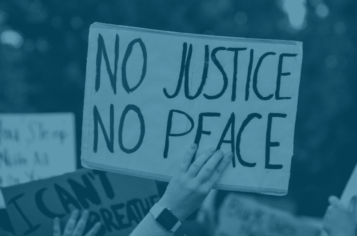This website uses cookies so that we can provide you with the best user experience possible. Cookie information is stored in your browser and performs functions such as recognising you when you return to our website and helping our team to understand which sections of the website you find most interesting and useful.

“Because of this, I mourn, and tears flood my eyes. No one is here to comfort or to encourage me; we have lost the war — my people are suffering.” Lamentations 1:16
Oftentimes I think of Jesus in the garden of Gethsemane. Knowing what was imminent, Christ, accompanied by three of His disciples, Peter, James and John, withdraws to pray. Overcome with distress, He expresses his emotions and makes a request “…My soul is deeply grieved, even to the point of death. Remain here and stay awake with me” (Matthew 26:38).
Three times Christ retreats to pray, where He vocalises His anguish to God in prayer and “…His sweat became like drops of blood, falling down on the ground.” Three times He finds his friends asleep.
It is no secret that the last couple of years have presented some of the most stressful and challenging moments in our lives. Much like Christ before His crucifixion, our mental, spiritual and emotional state has been in intense turmoil brought on as world events unfolded and collided with faith and our lived experiences.
Recovery and rest for our souls may be found in a much-neglected spiritual practice – lament.
Lament is a prayer – a cry out to God – that takes us from a place of pain to one of hope and praise. It provides the physical, emotional and spiritual space to take off the masks we wear daily and gives permission for our souls to freely express all that we are thinking and feeling. It is a unique place where the frailty of our human condition meets the limitless comfort of our Saviour.
Lament is a journey best done together, in community. Learning from Gethsemane, Jesus takes a small group of trusted friends and does not try to ’save face‘ by suppressing his emotions. Instead, He exposes His pain to t hem and invites them into His suffering.
When the right physical, emotional and spiritual environment is provided, lament gives space for authenticity, truth-telling and expression of emotions without restraint. It allows communities and individuals to be vulnerable by sharing and processing their own stories, innermost hurts and frustrations.
Lament also helps those who engage in it to deal with the numbness they may feel due to continued disappointment, grief, pain and weariness. It really is a healing balm that provides a sense of relief.
Lament in community is a pre-cursor to reconciliation. It is an invitation to draw closer to those suffering and the language of love that builds bridges where there is division. When communities cry out against sin and injustice, they affirm the dignity of those suffering, reminding them that they are not only seen, heard, valued and understood by God, but by the community of believers.
Lamenting together is an action of humility and a compassionate response to another’s pain that is sometimes different from our own. It increases our ability to empathise, therefore producing deeper connection and resolve to see and want the best for each other. We are aptly reminded of this “communion of suffering” in Hebrews 13:3 “Remember those in prison as if you were bound with them, and those who are mistreated as if you were suffering with them, since you are also in the body.”
Contemplative lament is not rushed, nor is it wanting to speedily resolve matters through knee-jerk reactions and uninformed action. Instead it is engaging and creates room for deep listening, silence, reflective questioning, increased learning, and awareness, where solutions may not be immediate but are heartfelt and considered.
Lament looks forward and restores hope. It presents us with the opportunity to look up to God and activates our memory by reminding us of countless testimonies that not only tell us who He is but also reveals His heart towards us. It restores our confidence in God – that He sees, He is “…touched with the feeling of our infirmities…” (Hebrews 4:15) and He answers prayer. It allows us to dream of new possibilities for whatever our hearts are burdened for. David writes in Psalms 27:13, “What, what would have become of me had I not believed that I would see the Lord’s goodness in the land of the living!”
“I am beginning to see that much of praying is grieving. This grief is so deep not just because the human sin is so great, but also—and more so—because the divine love is so boundless. To become like the Father whose only authority is compassion, I have to shed countless tears and so prepare my heart to receive anyone, whatever their journey has been, and forgive them from that heart.” Henri J.M. Nouwen, Return of the Prodigal Son

Sophia Kiguta-Kiarie has worked in the charities and higher education sectors and is a member of the Sankofa Collective.




